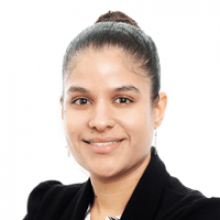Composition, Communication and Function of the Tumor Microenvironment

Organizers
Mikala Egeblad, Cold Spring Harbor Laboratory
Ron Vale, HHMI/Janelia Research Campus
Harold Varmus, Weill Cornell


Mikala Egeblad, Cold Spring Harbor Laboratory
Ron Vale, HHMI/Janelia Research Campus
Harold Varmus, Weill Cornell

Michael Caplan, Yale University
Patrick Chitwood, HHMI-Janelia Research Campus
Jennifer Lippincott-Schwartz, HHMI-Janelia Research Campus

Misha Ahrens, Janelia Research Campus/HHMI
Asya Rolls, Technion University
Nelson Spruston, Janelia Research Campus/HHMI
The workshop "From Images to Knowledge with ImageJ & Friends" (I2K 2020) is fully virtual. Tutors and students live in various time zones around the globe. We therefore run almost all tutorials twice, once in the morning and once in the evening of the tutors' time-zone. Both sessions cover the same content, i.e. students participate in only one session.
This exciting online seminar series represents a partnership among eight sister institutes on five continents: North America, South America, Europe, Africa and Asia.
Recognizing that open communication of science across borders is key to increasing knowledge and advancing solutions to global problems, the series will feature two short talks from one of the sister institutes each week: one on science and another on science culture.

We will use Zoom hosted by HHMI Janelia to hold the tutorials. This enables video+audio communication, screen-sharing, and chats. Each tutorial will last up to 4h and will be held twice, once in the morning hours of the tutor’s work-day and once in evening hours of the tutor’s work-day. This guarantees that participants around the planet have access to each tutorial at a reasonable time during their day.

We encourage applications from junior scientists pursuing research aimed at understanding how cognitive processes and behavior are implemented at the level of circuits, cells, and molecules. This meeting is open to a broad array of ideas and approaches in a variety of animal models, and we will also consider theorists with a strong interest in linking their ideas to experimental data. The agenda will be thematically tuned to explore some of the issues raised by participants, with a general emphasis on studies of cognition broadly construed (e.g.

Applications are open to anyone interested in understanding the full spectrum of optical imaging capabilities, including graduate students, postdocs, independent scientists, faculty and core facility managers. To be considered, applicants must justify their need to learn imaging on multiple modalities, expand on prior imaging experience, and explain their motivation for taking the course and how it will help their work. The course is designed to provide advanced training in optical microscopy. Prior microscopy experience is strongly encouraged.

James Fitzgerald, Janelia Research Campus/HHMI
Anne Draelos, University of Michigan
Joe Donovan, Max Planck Institute for Biological Intelligence
Martin Haesemeyer, Ohio State University

Tom Sudhof, HHMI/Stanford University
Rachel Wong, University of Washington
Larry Zipursky, HHMI/University of California, Los Angeles